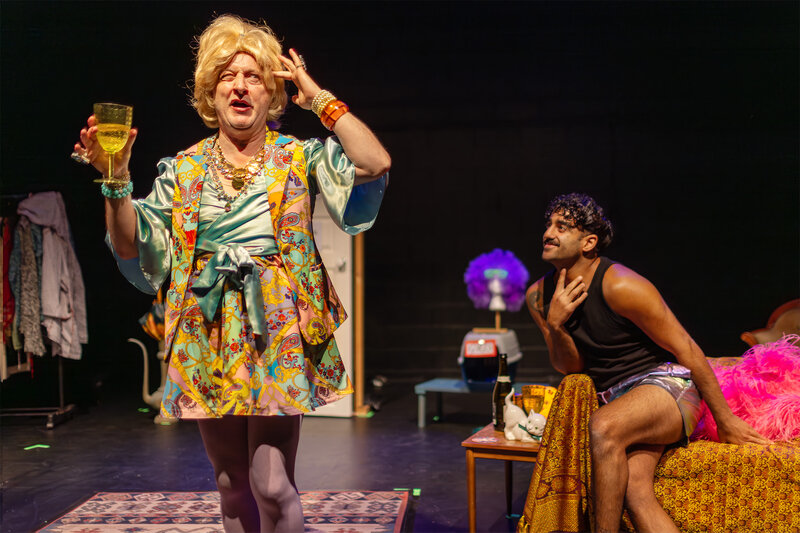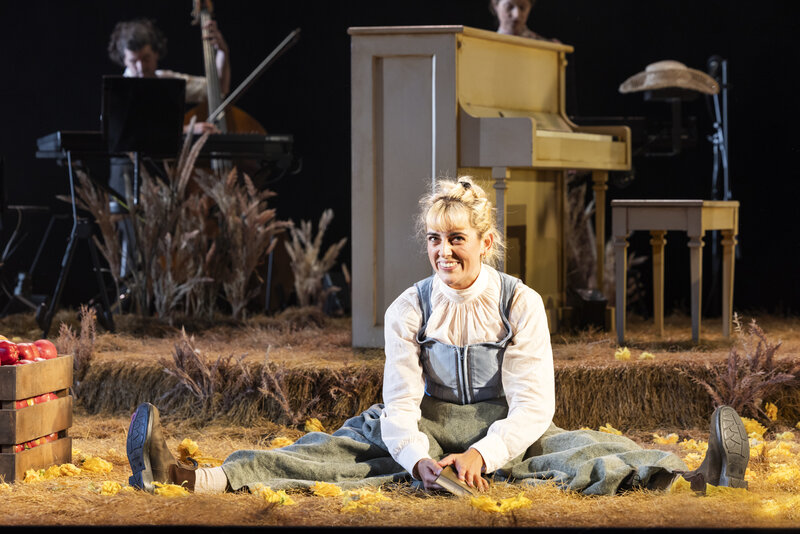Nicole Kidman is noted for tackling a number of challenging roles and here is another; a needy woman on the precipice.
Husband and wife, Matthew (Joseph Fiennes) and Catherine Parker (Kidman) have recently moved to the remote Australian desert town of Nathgari with their two teenage children. Their lives are flung into crisis when they discover the kids have mysteriously disappeared ahead of a massive dust storm. Led by local cop David Rae (Hugo Weaving), the search is on in earnest when it becomes apparent that something terrible may have happened to the children. Suspicion is cast, fingers are pointed and rumours spread as their chances of survival diminish with each passing day.
 The family was forced to leave their previous home after an ugly incident and their 15-year-old daughter has developed a reputation as being sexually promiscuous. Matthew is moody at best, a ticking time bomb with a penchant for fits of rage; while Catherine is emotionally and physically isolated, desperate for human interaction and feeling.
The family was forced to leave their previous home after an ugly incident and their 15-year-old daughter has developed a reputation as being sexually promiscuous. Matthew is moody at best, a ticking time bomb with a penchant for fits of rage; while Catherine is emotionally and physically isolated, desperate for human interaction and feeling.
When director Kim Farrant was 22, her father died and that pivotal time in her life was a major inspiration for making Strangerland. Even though she knew he was dying, she was not prepared for the overwhelming grief and primal desires she experienced in the face of his actual death. She found herself wanting to connect and to feel something other than the dark cloud of grief that was shrouding her. The loss left her feeling powerless with nothing to hold onto. Sex conjured the illusion that she could regain control, but it was momentary … and then the despair, the uncertainty of life came flooding back.
Farrant found a writer – Fiona Seres – who understood life’s tragedies and together they sat in a room for two weeks and told war stories. They shared crazy moments from their youth and brainstormed characters and story strands and created an eerie world for these people to be strangers in. Seres then wrote the script, to which Michael Kinirons also contributed.
Nathgari is a remote and unruly world where nature is cruel, the climate unbearably hot and the locals are hardened by life. The disappearance of their kids in this hostile environment plunges Catherine and Matthew into states of denial, blame, violence and addiction.
Strangerland spotlights the tragic flaws, high-pressure situations can bring out in people and the lengths to which we go to maintain our public personas and suppress our most untenable feelings. At the core of this couple’s terror is the fear of that which they cannot control, both externally and internally. The land/nature is an all-powerful force (the endless desert and the uncontrollable dust storm), while on a human level there’s the constant threat of men desiring their daughter. What drew Matthew to his wife is the thing he most despises about her and tries to shut down.
The vanishing of the children in this mysterious landscape echoes centuries of unresolved white anxiety about the outback. There’s the abiding paranoia that the land was somehow punishing them for taking it from the Aboriginal people – by taking their children. So it is that this eerie outback landscape becomes a key character in the film.
In this way, Strangerland joins a long line of Australian classics such as Walkabout (1970), Wake in Fright (1971) and Picnic at Hanging Rock (1975). These all involved stories where nature overwhelms strangers struggling to navigate their way through grueling landscapes with very little understanding or appreciation of the spirit of place. A dark and atmospheric pall hangs over Strangerland from the outset. It is a complex, troubling and an affecting film on several levels. Despair and isolation are two words that immediately come to mind while trying to unravel what is at the heart of this drama.
Many, if not all the characters featured, appear compromised, if not broken. Several, led by Fiennes’ character Matthew, are hardly likeable.
I regard Strangerland as gutsy and alluring, strong and seedy, a cause for reflection and contemplation. While there’ll be those who find it heavy going, I appreciate the sensibilities of the writers and director, and give it a 7.5 out of 10.
Director: Kim Farrant
Cast: Nicole Kidman, Joseph Fiennes and Hugo Weaving
Release date: 11 June 2015
Rated: MA 15+
Alex First

David Edwards is the former editor of The Blurb and a contributor on film and television




